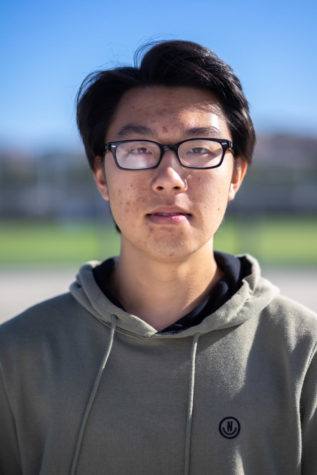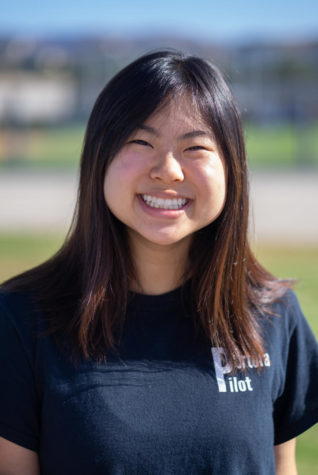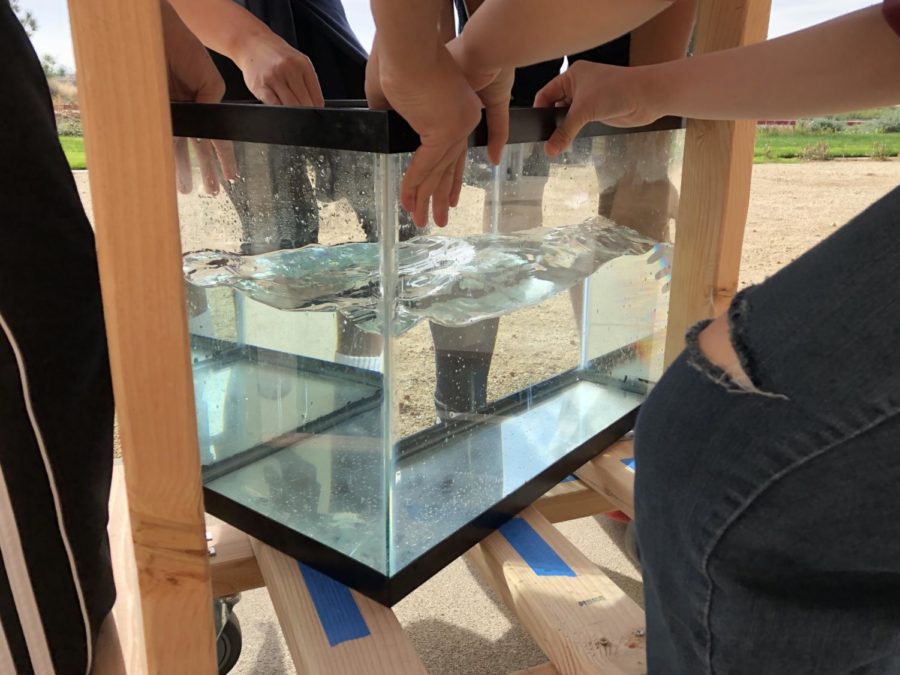Aquaponics Evolves Throughout the Years
Students from the 2017-18 Living Earth classes collaborate around a fish tank resting upon a wooden structure that they constructed themselves. The structure contains wheels that students drilled on with help from principal John Pehrson in the Innovation Lab.
Freshmen Living Earth classes at Portola High have changed their aim of the Aquaponics Genius Project from project completion and system transportation to a full focus on environmental sustainability for the 2018-19 school year. Honors students are working on larger projects, while CP students are working on smaller models.
“Through my experiences with aquaponics so far, I’ve grown a lot of interpersonal skills as well as skills as an engineer and a scientist. As a group, we learned how to find problems and redesign solutions to those problems,” freshman Sai Kuppili said. “We also learned how to work as a productive and efficient group in order to produce a functional and successful end product by a deadline.”
Teachers have been expanding on keeping students engaged to their projects through switching from one large system per class in 2016, two systems per class in 2017 to finally four teams per class this year.
“The first year we did [aquaponics], it was all from scratch; there were a lot of very different looking systems,” Arredondo said. “Last year, we saw a lot of creativity because we had students more focusing on the transportation mode of the systems, so they had to build these elaborate carts to move these heavy systems to and from. This year… students are able to focus more on the actual drainage systems and what is the best way to move the water from the fish tank to the grow bed.”
The Guacfish team in Period 8 Fronk, made up of freshmen Bia Shok, Michelle Kim, Desmond Wong, Ashley Kim, Elena Kim, Parsa Salashori and Angela Chen, is one example of a group that takes on this very focus as their strongest aim.
“We have been working on the watering part of the system especially, because we want to make sure that all the plants are able to be provided with the same amount of water,” Shok said. “The engineers are using a water pump and a pipe to transfer the water to the top of the system, and we are all brainstorming ways to equally distribute the water.”
Teachers are able to recognize that tweaking the number of students per team and modifying project visions and end goals can end up creating the most beneficial environment for students.
“We’re really hoping this year to actually keep systems running year-round so that we can keep tilapia and reuse them every year,” Arredondo said. “I think that it’s also going to be exciting if we are able to sustain systems from year to year… and keep some plants growing, and that it will also re-inspire students from years to come, like ‘How can I make something even better than that?’”
Your donation will support the student journalists of Portola High School. Your contribution will allow us to purchase equipment and cover our annual website hosting costs.

Aaron Sha is the 2019-20 Features Editor for his third and, sadly, final year in the Portola Pilot. In this year, he hopes to bring the people and events...

Tiffany Wu is your 2019-2020 Co-News Editor! She is most excited to insert ads on Print Days. In her spare time, she can be found browsing memes and eating...

Jenny Won is your Opinion Editor for this school year, her third and final year on the Portola Pilot. After having been with this program throughout almost...




